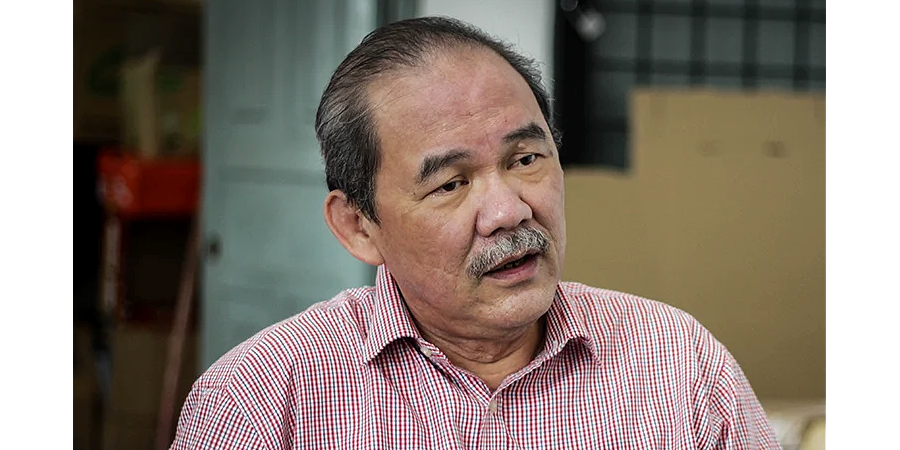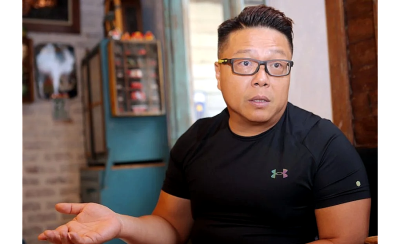
I wrote and shared the message (below) with my online contacts on October 6, two days before Singapore executed another young Malaysian convicted of a drug offense.
It was reportedly the second execution of a Malaysian to be carried out in the island republic in two weeks.
It was on October 6 that a group of Malaysians MPs and leaders of some NGOs called a press conference at the media room in Parliament to appeal for the postponement of the execution.
A noble action nonetheless but it was too little too late.
The drug menace and capital punishment are two issues I have written about on many occasions in the past.
On October 6, after reading the story of the press conference, I decided to share the following online. It was titled: “My comment on the death penalty in Singapore and Malaysia.”
“I will find it difficult to join such a press conference (on the Panir Selvam case) to speak up, even for a fellow Malaysian in death row in Singapore, such as this one in Parliament today (October 6).
“This is why. No one is happy to see the state execute a young man. Neither do I.
“But this is Singapore and the city state is known for enforcing its capital punishment laws consistently for serious drug offenses. In this case, ‘You do the crime, not only will you have to do the time but also pay with your life.’”
“Now, let us take a serious look at the drug situation in Malaysia today. Not only are the yuppies and many among the affluent are doing drugs in nightclubs, bars and home parties, even lorry drivers (add in taxi and e-hailing drivers, and food delivery riders) are druggies.
“I’ve been informed that drugs of all kinds are flowing freely in some of our colleges and universities, both private and public. This is nothing new, so I was told.
“Yes, we have a director (a full police commissioner) in charge of the Bukit Aman Narcotics Crime Investigation Department (NCID). How successful can this department be when it’s not uncommon to hear of policemen being involved in drugs themselves? You tell me.
“This is also one reason why I do NOT support the call to abolish the death penalty in Malaysia? (But I am in favor of ridding the mandatory death penalty – allow the judge to decide.)
“Other than drugs and other serious crimes such as murder and terrorism, I would even venture to state that the ‘Absolutely Corrupt’ should also face the death penalty.
“I always remember these words of a former Malaysian PM: ‘In China, the corrupt are sentenced to death. In Malaysia, they smile and go free. Some are even given a pension.’
“And this is why, folks. Malaysia is destined to be a lucrative drug destination with its lax drug laws and corrupt officers at the border.
“I am in favor of the Singapore way; it shows how serious the island state is in wanting to achieve a drug-free nation.
“As for corruption in Malaysia, need I say more?
“PMX declared a few days ago that his government aims to ‘clean up the mess’ of corruption and abuse of power within the next two to three years, emphasizing ‘uncompromised strictness’ in holding all—regardless of rank or whether already retired—to account.
“I wish Mr Madani every success and the best of luck in this oft-repeated quest of his. He needs plenty of luck … and much more,” I added.
When a law is effective and serves its purpose well, why discard it!
Now, why do I support Singapore’s death penalty for drug offenses, though controversial it might be?
Why shouldn’t I when I also support our own Malaysian laws, including capital punishment, for those involved in the drug trade?
Singapore’s policy’s primary merit lies in its deterrent effect, first of all.
The island state has argued that its zero-tolerance stance has successfully prevented the country from becoming a major drug hub in a region rife with narcotics trafficking.
Supporters point to Singapore’s low drug consumption rates and stable social environment as proof that strict laws help safeguard communities from the violence, addiction and family breakdowns that often accompany the drug trade.
In essence, despite growing international opposition and human rights concerns, Singapore maintains that its death penalty for drug offenses serves the greater good: preserving a safe, drug-free society through a clear, consistent, and uncompromising legal framework.
Indeed, Singapore’s capital punishment for drug offenses has merits. When a law is effective and serves its purpose well, why discard it!
Now, let us look at the drug menace in Malaysia today.
In a startling development, Malaysian authorities recently carried out one of the country’s largest ever drug seizures: over 3.5 tons of the synthetic drug MDMA (ecstasy) were seized in the Klang Valley in mid-September 2025 in a series of coordinated raids by the police.
Earlier in the year (January) a haul of methamphetamine at West Port, Port Klang, was valued at RM1.06 billion, marking a record-breaking interception.
These incidents illustrate that Malaysia is not merely an end-market, but also a major transit and processing hub for large-scale organized drug trafficking.
The size and value of the seizures reflect both the sophistication of criminal networks and the volume of illicit drugs flowing through the country.
The drug menace in Malaysia is serious indeed. It is now widely acknowledged by our own leaders that the drug-abuse situation has reached critical levels.
According to Deputy Prime Minister Ahmad Zahid Hamidi, there were 192,857 drug users and addicts in 2024, with 61 percent aged between 15 and 39 and 96 percent male.
The fact that much of the abuse is concentrated among younger, productive age groups in states bordering Thailand (such as Kelantan, Terengganu, Perlis and Kedah) indicates not only a public-health challenge, but also a threat to social stability and economic productivity.
Is there any more reason we need to continue with the death penalty for drug offenses in Malaysia?
Drug kingpins and barons deserve the harshest punishment, for a nation has a solemn duty to protect its people from the devastating scourge of drugs.

(Francis Paul Siah is a veteran Sarawak editor and currently heads the Movement for Change, Sarawak (MoCS). He can be reached at [email protected].)
ADVERTISEMENT
ADVERTISEMENT







































